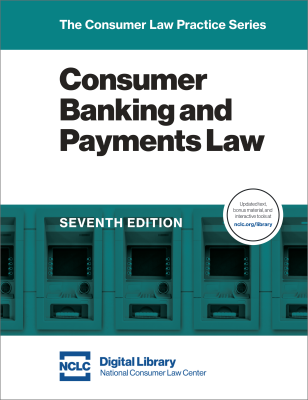Many higher education institutions use prepaid cards or identification cards linked to bank accounts to disburse financial aid credit to students. Financial aid credit is a student’s remaining financial aid funds after tuition payment and other direct payments to the school have been made.
Schools contract with third party card servicers to steer students into these accounts and receive compensation from the servicers. Schools have been restricting students’ choice of how to receive their aid by implying that students are required to use the campus cards to access their funds or by making it difficult for students to seek other methods of receiving their funds. These campus card programs can subject students to excessive fees, limit student access to funds, and raise privacy concerns. ATM fees and limited access to ATMs, particularly fee-free ATMs, have posed significant difficulties for students.
In response to these issues, on October 30, 2015, the U.S. Department of Education amended its Student Assistance General Provisions regulations pursuant to the Higher Education Act (HEA). The new rules are generally effective July 1, 2016, though compliance with certain provisions regarding disclosures of compensation and school contracts with third party servicers is required by a later date. Chapter 7 of NCLC’s Consumer Banking and Payments Law has been revised to reflect these new regulations.
The Regulations at a Glance
The regulations aim to ensure that students have a choice in where they receive their financial aid credit, to protect students from bearing the cost of financial aid disbursement, and to increase transparency regarding campus cards arrangements between schools and financial institutions.
The rules are different depending on how tightly the card program is integrated into the school’s financial aid disbursement process. As defined in the regulations, a T1 arrangement is when the third party servicer offers campus accounts and is also involved in disbursing financial aid. A T2 arrangement is when the third party servicer offers campus accounts under a contract with the school but is not involved in disbursing financial aid.
The rules limit fees for use of the prepaid cards. All T1 and T2 accounts will be protected against fees for account openings or receipt of access devices, but for T2 accounts, the rules only apply if a minimum number of students have received their financial aid credit through the accounts in the past three years. In addition, T1 accounts may not have overdraft, balance inquiry, or point-of-sale fees.
All covered schools also must:
- Inform students that they are not required to open an account with a specific financial institution;
- In a clear, neutral and fact-based manner, offer students different options of how to receive aid disbursement;
- Ensure that the accounts come with reasonable access to surcharge-free ATMs;
- Obtain student consent before opening an account with a third party servicer;
- Clearly disclose the T1 or T2 arrangement contract on the school website and provide the URL to the Secretary of Education to be publicized in a central database (to be effective September 1, 2016); and
- Disclose consideration paid or received by the school and the third party servicer (to be effective September 1, 2017).
More detail on the new rule can be found online at NCLC’s Consumer Banking and Payments Law § 7.5.2 and in the Federal Register announcing the changes, at 80 Fed. Reg. 67126 (Oct. 30, 2015).
Representing Clients with Claims under the New Regulations
The HEA does not provide a direct private right of action for a violation of the new rules. See NCLC’s Student Loan Law § 13.6.2.1 (5th ed. 2015), updated online. However, bringing claims under state statutes prohibiting unfair, deceptive or abusive practices (UDAP) may be a viable alternative, as long as the particular state’s UDAP statute applies to the applicable school or card issuer. Id. §§ 13.6.3.1, 13.6.3.2. For more information on UDAP claims, see NCLC’s Unfair and Deceptive Acts and Practices treatise. Account agreements that violate the regulations may also present contract law and other common law claims.

